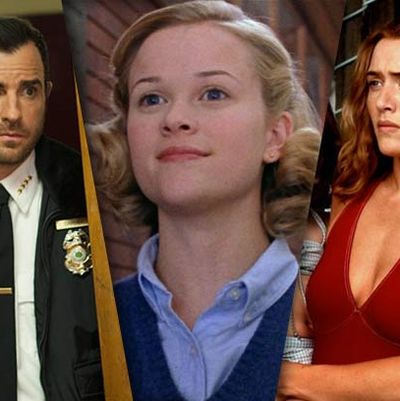
Tom Perrotta, who helped adapt his pseudo-Rapture novel The Leftovers into HBO’s big summer series (premiering Sunday), joined the show as a writers’-room virgin but a veteran self-adapter. All six of his novels and one of his two story collections have been optioned, and Perrotta’s had a hand in every screenplay but one (Alexander Payne’s Election); he has also written a couple of original scripts. A rare sideline for a literary writer, it’s as instructive for its failures as its hits. On a recent visit to Perrotta’s home in the verdant Boston suburb of Belmont, Vulture asked the author to take us on a walk-through of what he calls “the systematic exploitation of my work.”
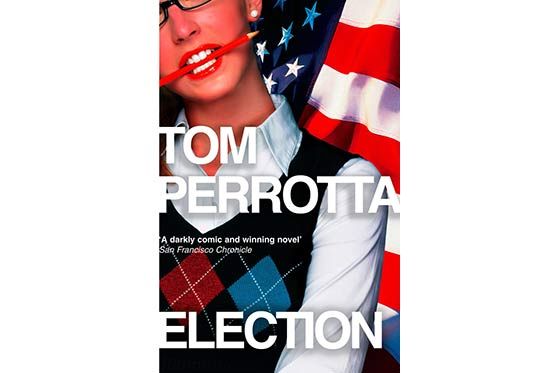
Election (1998 novel)
In 1995, the year after he published his debut story collection, Bad Haircut, Perrotta read at the Bread Loaf Writers’ Conference from a novel in progress called The Wishbones. One impressed writer in the audience recommended him to indie film producers Ron Yerxa and Albert Berger (who would go on to make Little Miss Sunshine). The Wishbones wasn’t ready, but Perrotta did have a novel kicking around that no publisher wanted. “I was not actively trying to sell myself,” he says, “but I was still very resentful that Election hadn’t made it out of my drawer.” Yerxa and Berger sold it to MTV Films, partnering with the up-and-comer Alexander Payne. Perrotta remembers an MTV exec asking, “You don’t want to write the screenplay, do you?” A year before the movie came out, a publisher deigned to release the novel. Payne’s take on the story is broader than the original. Could the movie possibly be better than the book? “It’s certainly funnier,” says Perrotta. “If you’ve seen the movie first, the book may be disappointing.” Its characters are more realistic and mature, but it bears remembering that it was Perrotta — with a huge assist from Reese Witherspoon — who invented that sticky meme of aughts politics, Tracy Flick.
Lucky Winners (unpublished novel)
In Election’s aftermath, Perrotta was flooded with the runoff of Payne’s success. “There were only so many things he could do,” says Perrotta, “and [studios] would go down the list and get to me.” The WB television network made a deal with Perrotta for two pilots. Election wasn’t the only unpublished novel cluttering up Perrotta’s office; Lucky Winners was a sprawling novel about a working-class New Jersey family (modeled on his own) that won the lottery. Perrotta thinks it “just got too big … I just didn’t know how to structure a book.” Turning it a screenplay, he says, “turned out to be not that hard; I knew how to write dialogue.” But the pilot episode was no more successful. One consolation: The WB deal paid him about three times his salary as an adjunct composition teacher at Harvard, a job he soon quit.
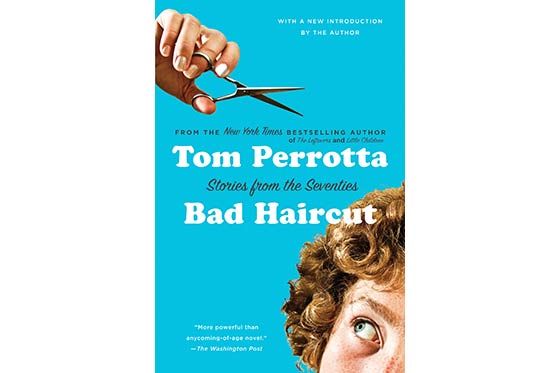
Bad Haircut (1994 story collection)
Perrotta’s other WB pilot was for his book of stories, which he reimagined as a period high-school series in the spirit of Freaks and Geeks. This time he had a writing partner, Frasier veteran Rob Greenberg. “We had a great time with it,” says Perrotta, “but the cable revolution hadn’t happened yet, and Bad Haircut was R-rated material.” They waged amusing battles with standards and practices: “We’ll trade you one more ‘ass’ if you get rid of the ‘douchebag.’ The writing was on the wall at that point. The creative people said, ‘Oh don’t worry about it, we’ll push the envelope.’ But you realized that that wasn’t really gonna happen.” Still, Perrotta says, “I was getting paid to essentially learn this craft.”
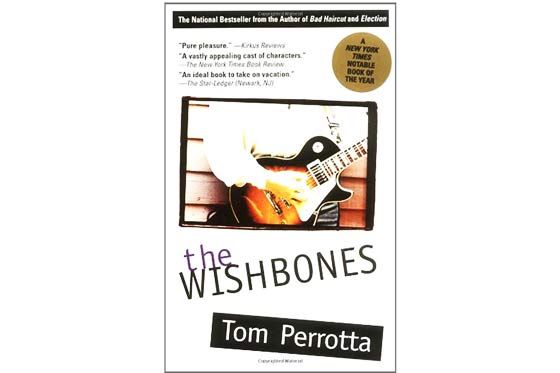
The Wishbones (1997 novel)
Variety endowed the effort to adapt Perrotta’s first published novel, the coming-of-age tale of a guy in a wedding band, with a rare distinction: “Development Hell.” “There was a day when I thought I’d be one of those crazy stories,” Perrotta says. “My agent called and said there were 16 interested buyers. Then came the news that Adam Sandler has a competing project, and 14 interested buyers dropped away.” Fox optioned it nonetheless, and had Matt Damon and Ben Affleck write a draft, just before Good Will Hunting came out. “I think they got famous and didn’t stick around,” Perrotta surmises. Noah Baumbach also took a crack. And then, post–Wedding Singer, Fox let its option expire. It went to New Line, where Perrotta wrote a draft. New Line let it drop, only to pick it up again in 2008 — only to drop it again. Then Showtime came along in 2010, and Perrotta wrote a pilot. “So that was the fourth. And what stage is that in? Dead.” Sandler problem aside, Perrotta cites the difficulty of selling a likable character who has an affair. “There are different moral economies” onscreen, he says. But when you add up his four options, he reckons, “It was still more money than I had made on anything. It went from being a frustrating thing to an insurance policy.”
Hometown Boys and Barry and Stan Gone Wild (unproduced screenplays)
In the early aughts, Perrotta decided to try original screenplays. Hometown Boys, about a high-school basketball coach who hires two ringers, was written alone and on spec; the addled road-trip comedy Barry and Stan was co-written with Greenberg. The latter was optioned by New Line but never picked up. The former didn’t go anywhere. “I learned that it was really hard to write an original script,” says Perrotta. “Somehow the form didn’t allow me to create complex characters, or maybe the form resisted the idea of a complex character. It’s a chapter in the history of my failures.”
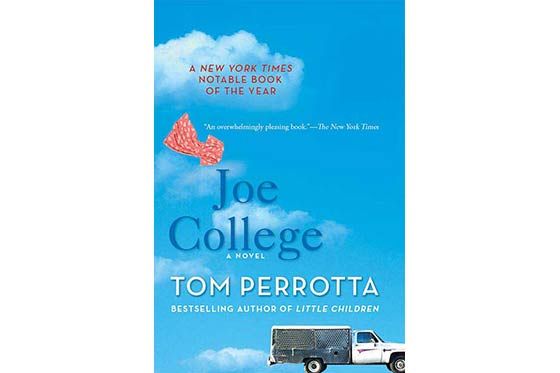
Joe College (2000 novel)
The semi-autobiographical story of a working-class kid who goes to Yale was, like all Perrotta’s novels, dark and comic by turns, but when he and Greenberg tried to develop a script (for the same production company that made Little Miss Sunshine), they had trouble turning it into something antic enough to meet the prevailing standards of Indie Quirk. “People had a certain idea of what a college comedy would be by the guy who had done Election,” says Perrotta, “and they were expecting something more exuberant. And it was really a book about social mobility, and the plot hinges on an abortion. I think it was just darker than people bargained for.”
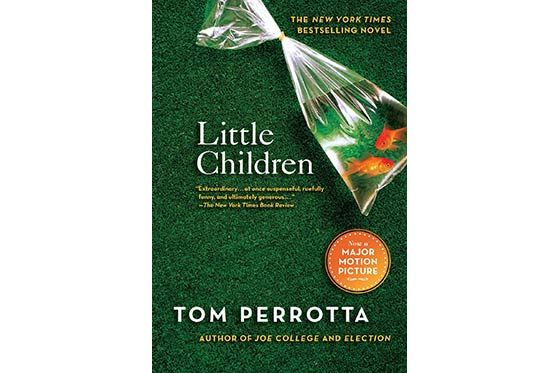
Little Children (2004 novel)
Perrotta’s most successful novel (critically and financially) also became his most successful collaboration — until The Leftovers. Director and co-writer Todd Field jibed with a story about adults badly astray in suburbia. “You talk to Hollywood executives and they say nothing will kill a story like a pedophile,” says Perrotta — but neither Field nor New Line seemed to mind. “I think the first hour of that film is very funny. It wasn’t so much that it took a serious turn as it that it got purified — it just became all dark rather than a mix of dark and light. A lot of the comic material in the second half ended up on the editing-room floor.” But he considers Kate Winslet’s performance the most faithful rendition of any of his adapted characters. “It’s especially impressive because Sarah on the page is described as being plain,” he says. Winslet decided to read the book, against Field’s instructions, and said publicly that Sarah’s backstory (a bisexual past) deepened the role.
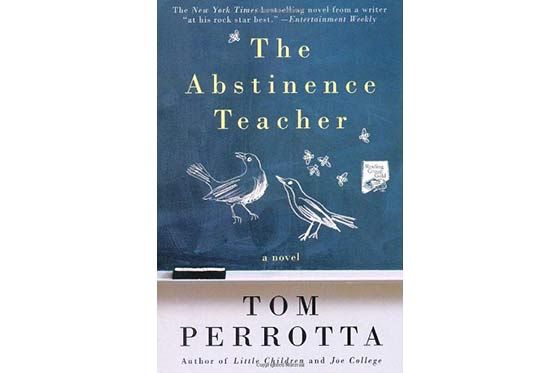
The Abstinence Teacher (2007 novel)
Perrotta remains optimistic about the film prospects of a book about a meet-not-so-cute between a sex-ed teacher and a born-again soccer coach in a town riven by religion and politics. After selling it to Warner Independent Pictures, Perrotta collaborated on a very faithful script with Jonathan Dayton and Valerie Faris — the husband-and-wife team behind Little Miss Sunshine — followed by a second draft with Lisa Cholodenko (The Kids Are All Right). Then Warner Independent went under, and the project moved to Warner Bros., “which doesn’t make low-budget art films. I think they’ve been very supportive, but they’re much more interested in big stars and big splash.” If it comes together, it might turn out to be the movie that stays truest to Perrotta’s plainspoken realism.
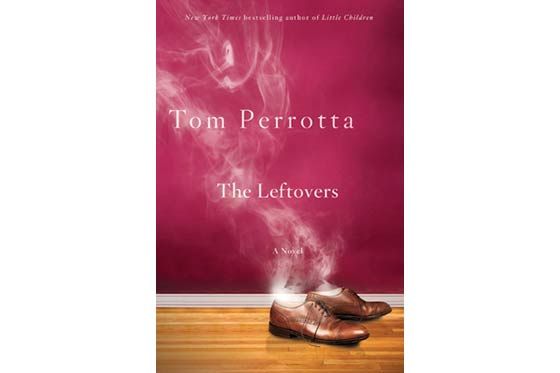
The Leftovers (2011 novel)
The story of what happens when millions of people around the world mysteriously vanish, leading to social breakdowns and a proliferation of cults, sounds like a natural fit for the movies. But from the beginning, Perrotta says, it didn’t make sense: “There are too many elements.” Besides, he’d grown besotted with cable TV (especially Mad Men). “Frankly,” he says, “it was not difficult to sell it as a TV show.” That doesn’t necessarily mean it was easy. HBO quickly decided to bring in an experienced show runner, and Damon Lindelof, late of Lost, was high on its list. Together, Perrotta and Lindelof wrote a generally straight adaptation. HBO came back with one “strong note,” per Perrotta: “We have a main character who is maybe a little too nice and a little bit too marginal.” So the writers turned Kevin Garvey, the peacemaking mayor, into Kevin Garvey, the tormented, adversarial chief of police. (Every cable drama needs an antihero, after all.) Lindelof has since introduced various Lost-like elements: symbolically freighted animals, dream sequences, and possibly red-herring supernatural elements. Perrotta calls the question of the supernatural the “defining creative tension” between him and Lindelof. The show dials up the violence but also digs farther into more backstories than the novel did. Perrotta spent weeks at a time out in L.A., not just writing but looking in on casting and editing. Rarely has a novelist been given so much leeway and gotten so much say in return. Perrotta’s even written a full episode — No. 5 — with almost none of the novel in it. “We were really not looking at the book as source material at that point,” he says. It’s almost like writing another novel.

